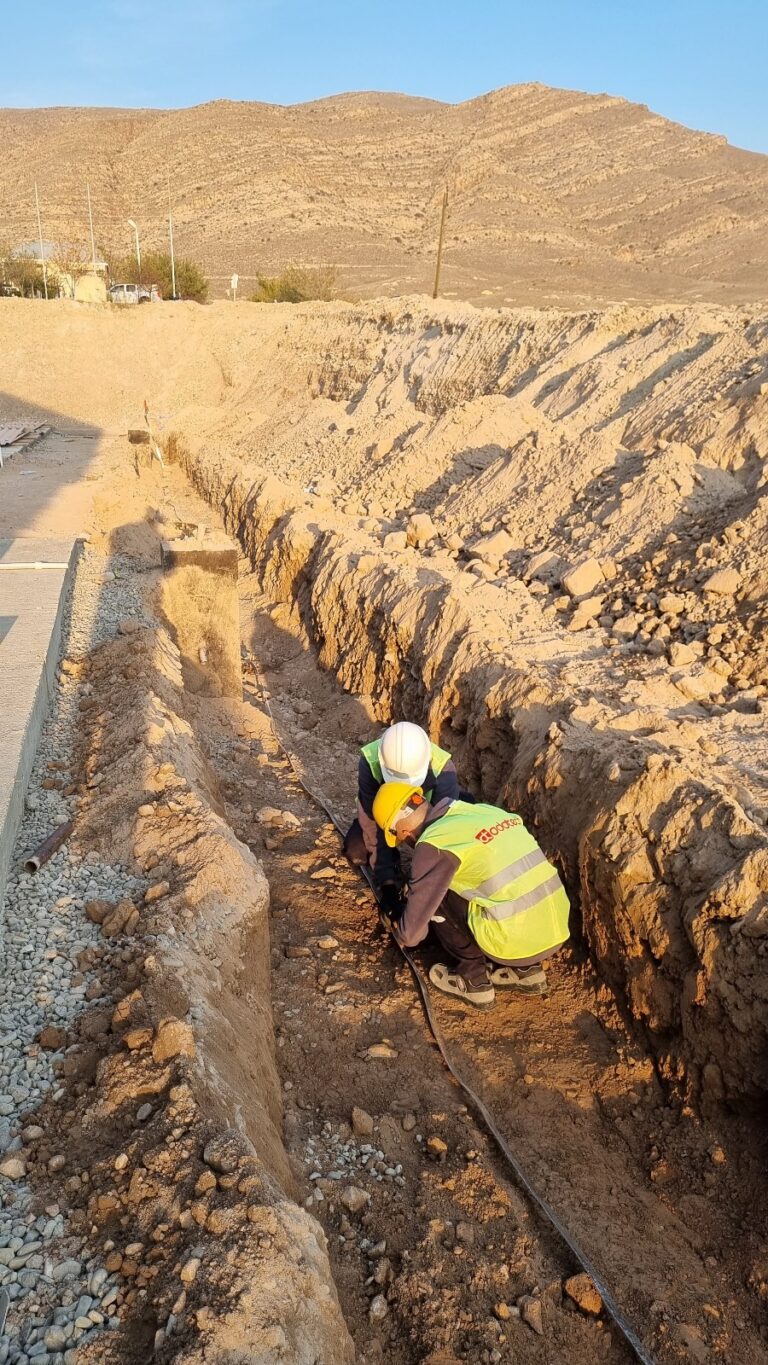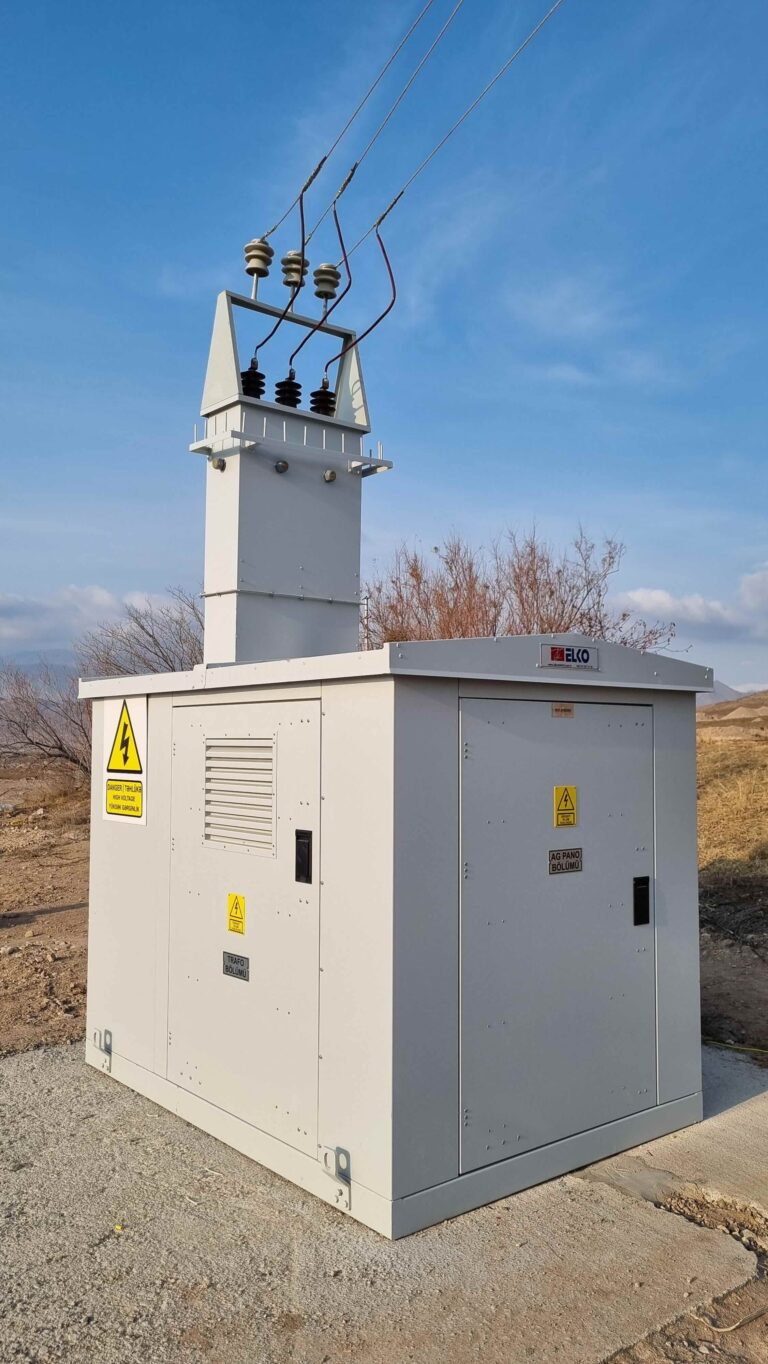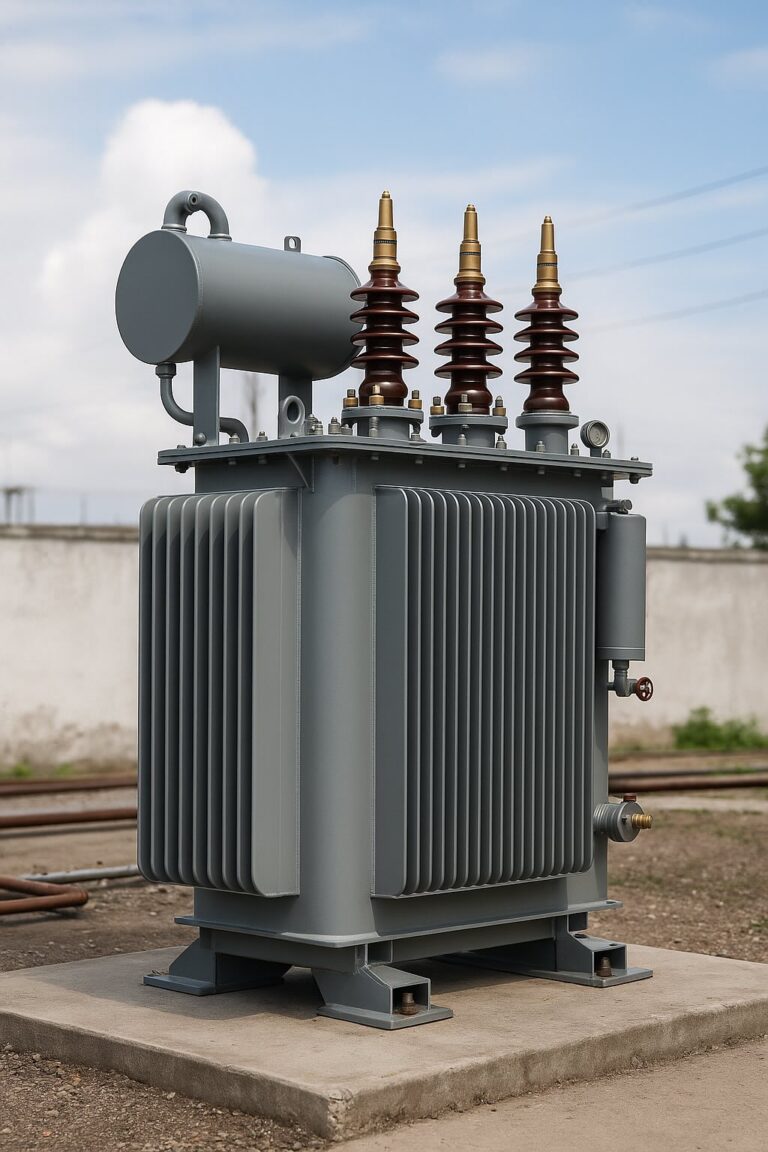What is Grounding? How is it Measured?
Grounding, also referred to as earthing, is a crucial safety measure in electrical systems that protects both people and equipment...
Devamını Oku

In industrial safety, evaluating the potential hazards of gases is of paramount importance. The Lower Explosion Limit (LEL) is a key parameter used to determine the risk of explosion when dealing with combustible gases. The LEL refers to the minimum concentration of a gas in the air that can ignite or explode if an ignition source is present. If the gas concentration is below this threshold, ignition is not possible; however, once it exceeds this limit, the risk of fire or explosion becomes critical.
The importance of LEL lies in protecting both human life and industrial assets. Facilities such as refineries, chemical plants, natural gas stations, and petrochemical industries rely heavily on continuous gas monitoring to maintain safe operations. Even a minor oversight can lead to catastrophic consequences. Therefore, LEL values serve as fundamental references when setting alarm thresholds in gas detection and monitoring systems. Engineering companies like Adatech provide advanced solutions, including gas detectors and automation systems, to minimize these risks and enhance workplace safety to international standards.
The Lower Explosion Limit (LEL) defines the minimum concentration of a flammable gas in the air that is capable of igniting or exploding when exposed to a spark, flame, or sufficient heat. It is usually expressed as a percentage of the gas in air by volume. If the concentration is below the LEL, the mixture is too lean to ignite. Once the concentration rises above this limit, the gas becomes flammable and presents an immediate safety risk.
This concept is essential for designing and maintaining safe industrial environments. LEL values are used as reference points in gas detection systems, safety planning, and regulatory compliance. By monitoring these values, facilities can detect dangerous situations early and respond effectively. Companies like Adatech, with expertise in gas monitoring and automation, integrate advanced technologies to ensure that LEL levels are controlled in real time, minimizing explosion hazards.
The Lower Explosion Limit (LEL) was defined to identify the point at which flammable gases become hazardous in air. By establishing this threshold, industries can assess the risk of explosion and implement preventive measures before conditions become dangerous. It provides a scientific basis for setting alarm levels, designing safety systems, and ensuring worker protection in hazardous environments.
The LEL value is measured using specialized gas detectors designed to monitor flammable gas concentrations in the air. These devices analyze samples continuously and express results as a percentage of the LEL. When integrated into automation systems, they provide real-time monitoring, trigger alarms at predefined thresholds, and allow immediate response to potential explosion hazards in industrial environments.
Each gas has a unique Lower Explosion Limit (LEL), determined by its chemical composition and properties. For example, methane, propane, and ethane all have different thresholds that indicate when they become flammable in air. Knowing these values is critical in industries where gases are used, stored, or transported, as even small leaks can create explosive atmospheres if concentrations rise above the LEL.
LEL values are standardized and referenced globally to ensure safety in industrial operations. They provide benchmarks for calibrating gas detection systems and setting alarm levels in safety protocols. By relying on these values, facilities can proactively prevent incidents. Engineering experts like Adatech develop solutions that integrate these standards into monitoring and automation systems, creating safer working environments.
Common gases have distinct LEL values that determine their flammability in air. Methane ignites at about 5% concentration, ethane at 3%, and propane at approximately 2.1%. These variations mean some gases become hazardous at lower concentrations than others. Understanding these limits is vital for industrial safety, as it guides alarm settings and protective measures in facilities handling flammable substances.
An LEL table lists the explosion limits of different gases, helping compare their flammability thresholds. By reviewing the percentages, safety teams can identify which gases pose greater risks at lower concentrations. These tables are essential for calibrating gas detectors and defining alarm levels, ensuring that monitoring systems are aligned with the specific hazards of each gas.
In industrial facilities, maintaining safety requires a systematic approach to LEL monitoring. This involves continuously measuring gas concentrations in different areas of the plant using strategically placed detectors. By tracking these levels, operators can detect leaks or abnormal increases in gas presence at an early stage, preventing dangerous conditions from escalating into accidents.
The effectiveness of monitoring strategies depends on both the technology and the integration of automation systems. Advanced software solutions collect and analyze real-time data, issuing instant notifications when thresholds are approached. These proactive measures protect workers, safeguard assets, and ensure uninterrupted operations. With expertise in engineering and automation, Adatech provides tailored monitoring solutions that minimize explosion risks and elevate industrial safety standards
Gas detectors are essential for continuously tracking LEL levels in industrial environments. Placed at strategic points, they provide constant measurements of gas concentrations and deliver instant alerts when dangerous levels are detected. This real-time monitoring enables workers and safety teams to act quickly, preventing explosions and ensuring uninterrupted facility operations while maintaining compliance with strict safety standards.
Automation systems play a crucial role in managing LEL levels by setting alarm thresholds at specific percentages of the lower explosion limit. When these limits are reached, the system automatically triggers alerts or initiates safety protocols. This proactive approach ensures rapid response, minimizes downtime, and enhances overall workplace safety by preventing flammable gas concentrations from escalating into critical hazards.
In industrial environments, alarm systems at LEL levels serve as a first line of defense against explosion hazards. When gas concentrations reach predefined thresholds, these alarms provide immediate alerts, allowing workers to evacuate or take corrective measures. Early warnings are crucial in preventing small leaks from developing into catastrophic incidents, safeguarding both human life and valuable assets.
Beyond emergency alerts, alarm systems also support long-term operational safety. They provide data that helps maintenance teams identify recurring issues and optimize safety protocols. By continuously monitoring and reporting on gas levels, these systems ensure compliance with international safety standards. With advanced engineering solutions, companies like Adatech deliver reliable alarm integration that strengthens facility protection and enhances resilience against gas-related risks.
Exproof products are specifically designed for hazardous environments where explosive gases may be present. The LEL limit becomes critical when gas concentrations rise to levels where even a small spark or heat source could trigger ignition. At this stage, exproof equipment ensures that electrical or mechanical components do not become ignition sources, providing an essential safety barrier.
Industries such as oil, gas, and chemical processing rely heavily on exproof solutions to maintain safe operations. Equipment like motors, lighting fixtures, and control panels are designed to contain or prevent sparks when gases approach their explosion limits. By integrating Adatech’s exproof engineering solutions, facilities can operate with confidence, ensuring both compliance with international standards and the highest level of protection against explosion hazards.

Grounding, also referred to as earthing, is a crucial safety measure in electrical systems that protects both people and equipment...
Devamını Oku
A transformer substation is a critical facility designed to convert electrical energy from high voltage to low voltage, ensuring safe...
Devamını Oku
An oil-filled transformer is a type of electrical transformer that uses insulating oil as both a cooling and insulating medium....
Devamını OkuPROTECTION OF PERSONAL DATA
WEBSITE COOKIE POLICY
Your personal data; It is one of the leading principles of our Organization to protect the privacy of visitors to the website (www.adatech.com.tr) operated by ADATECH as the data controller. This Cookie Usage Policy (“Policy”) explains to all our website visitors and users which types of cookies are used and under what conditions.
Cookies are small text files stored on your device or network server by websites you visit on your computer or mobile device.
They are generally used to provide you with a personalized experience during your use of the website you visit, to improve the services offered and to improve your experience, and may contribute to ease of use while browsing a website. If you do not prefer the use of Cookies, you can delete or block Cookies in your browser settings. However, we would like to remind you that this may affect your use of our website. Unless you change your cookie settings in your browser, we will assume that you accept the use of cookies on this website.
1. WHAT KIND OF DATA IS PROCESSED IN COOKIES?
Cookies on websites, depending on their type, collect data about your browsing and usage preferences on the device you visit the site. This data includes information about the pages you access, the services and products you review, your preferred language option and other preferences.
2. WHAT is a solution and what are its intended uses?
Cookies are small text files that are stored on your device or network server through browsers by websites you visit. These small text files, which contain your preferred language and other settings on the site, help us remember your preferences the next time you visit the site and make improvements to our services to improve your experience on the site. Thus, you can have a better and personalized usage experience on your next visit.
The main purposes of using cookies on our Website are listed below:
3.TYPES OF COOKIES USED ON OUR WEBSITE
3.1. Oturum Çerezleri
Session cookies ensure that the website functions properly during your visit. They are used for purposes such as ensuring the security and continuity of our sites and you during your visit. Session cookies are temporary cookies, they are deleted when you close your browser and come to our site again, they are not permanent.
3.2. Persistent Cookies
These types of cookies are used to remember your preferences and are stored on your device via browsers. Persistent cookies remain stored even after you close your browser or restart your computer from which you visited our site. These cookies are kept in subfolders of your browser until they are deleted through your browser’s settings.
Some types of persistent cookies may be used to provide you with special suggestions, taking into account issues such as your purpose of using the Website.
Thanks to persistent cookies, if you visit our Website again with the same device, it is checked whether there is a cookie created by our Website on your device and if there is, it is understood that you have visited the site before and the content to be transmitted to you is determined accordingly and thus a better service is provided to you.
3.3. Mandatory/Technical Cookies
These cookies are essential for the website you visit to function properly. The purpose of such cookies is to provide necessary services by enabling the website to function. For example, it allows you to access secure parts of the website, to use its features, to navigate on it.
3.4. Analytical Cookies
They collect information about the way the website is used, the frequency and number of visits, and show how visitors navigate to the site. The purpose of using such cookies is to increase performance by improving the way the site functions and to determine the general trend direction. They do not contain data that could enable the identification of visitors. For example, they show the number of error messages displayed or the most visited pages.
3.5. Functional/Functional Cookies
It saves the choices made by the visitor within the site and remembers them on the next visit. The purpose of such cookies is to provide ease of use to visitors. For example, it prevents the site user from re-entering the user password on each page they visit.
3.6. Targeting/Advertising Cookies
They enable the measurement of the effectiveness of advertisements served to visitors and the calculation of the number of times the advertisements are viewed. The purpose of such cookies is to serve ads customized to the interests of visitors.
Likewise, they enable the detection of visitors’ interests specific to their browsing and the presentation of appropriate content. For example, it prevents the advertisement shown to the visitor from being shown again in a short time.
4. HOW TO MANAGE COOKIE PREFERENCES?
To change your preferences regarding the use of cookies or to block or delete cookies, simply change your browser settings.
Many browsers give you the option to accept or reject cookies, accept only certain types of cookies, or be alerted by the browser when a website requests to store cookies on your device so that you can control cookies.
It is also possible to delete cookies previously saved in your browser.
If you disable or refuse cookies, you may need to set some preferences manually, some features and services on the website may not function properly as we will not be able to recognize and associate your account. You can change the settings of your browser by clicking on the relevant link from the table below.
5. ENFORCEMENT OF WEBSITE PRIVACY POLICY
Website Privacy Policy …./…./…./…. . is dated. In case all or certain articles of the Policy are renewed, the effective date of the Policy will be updated. The Privacy Policy is published on the website of the Authority (www.adatech.com.tr) and made available to the relevant persons upon the request of the personal data owners.
ADATECH
Address: Esenyalı Neighborhood Yanyol Street Varyap Plaza No:61-148 Pendik / Istanbul
Telephone: +90 (216 ) 514 80 69
E-mail: [email protected]
Web Address: www.adatech.com.tr